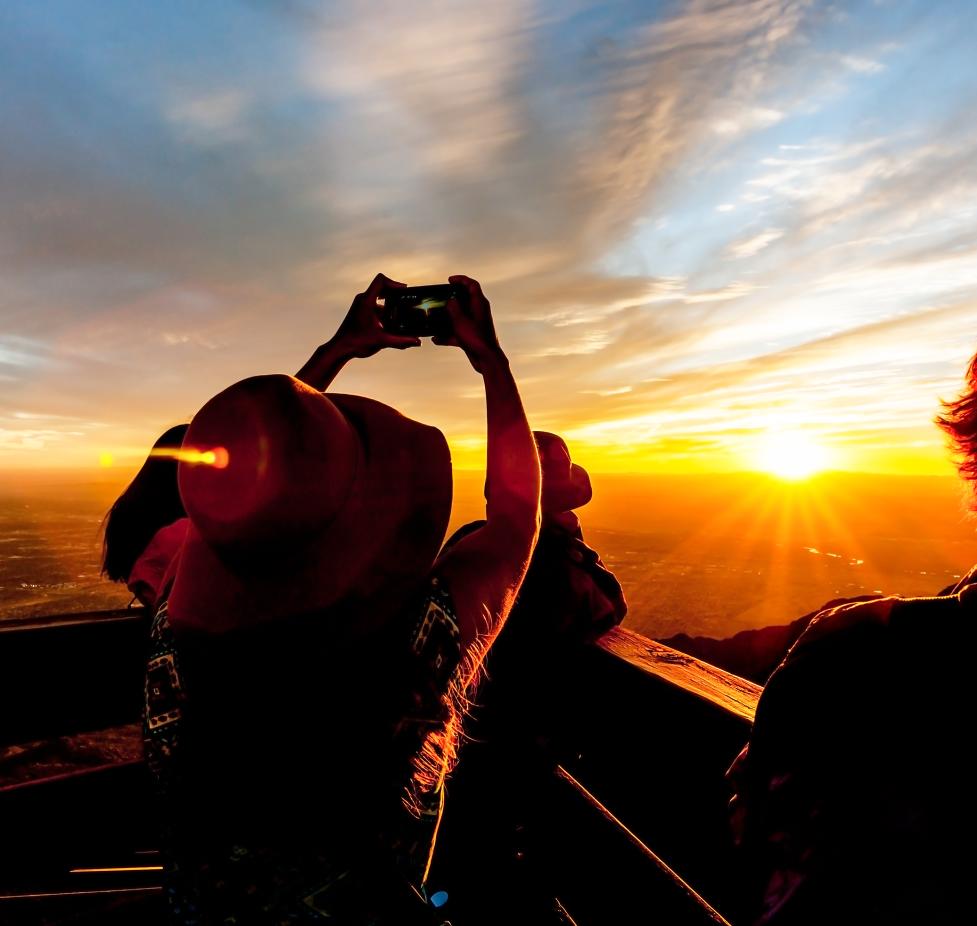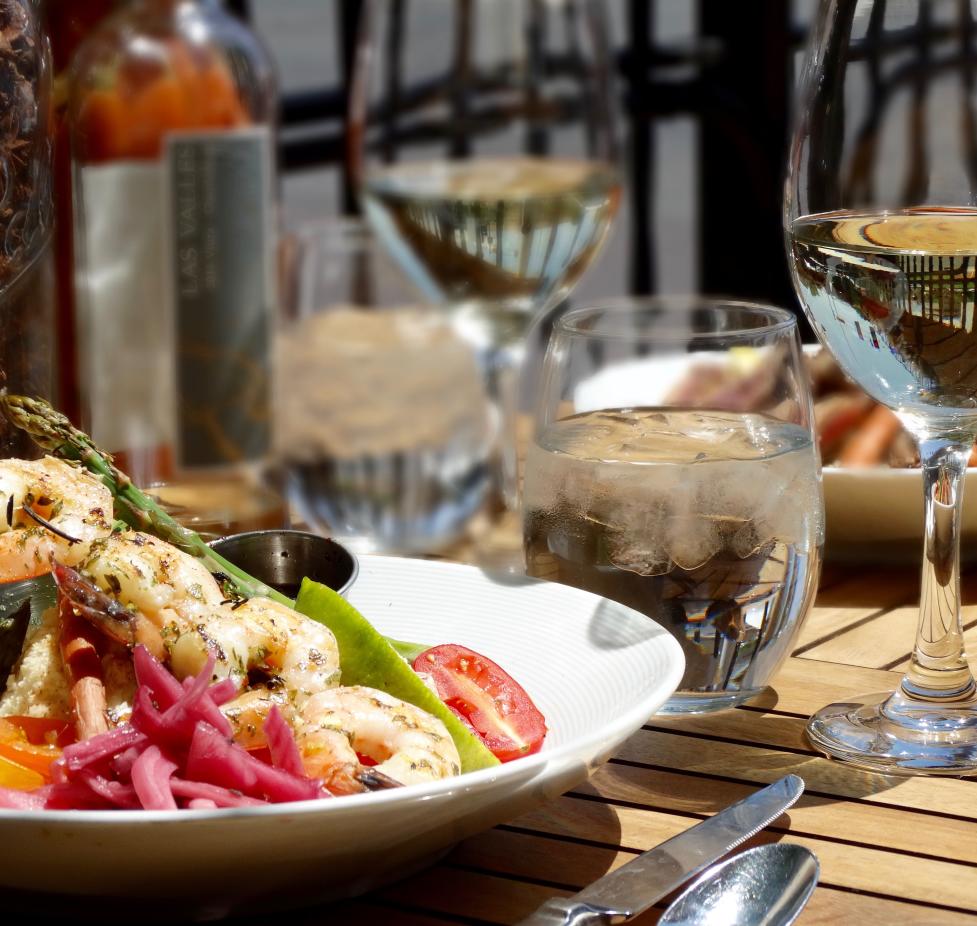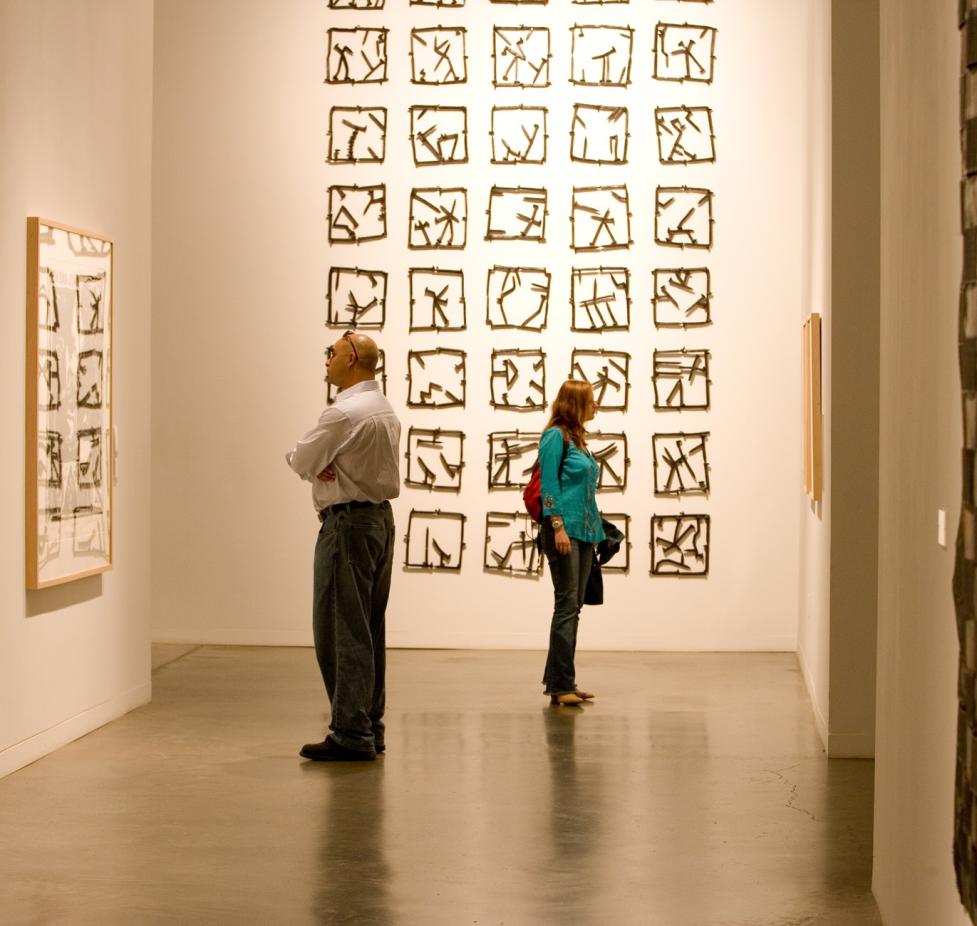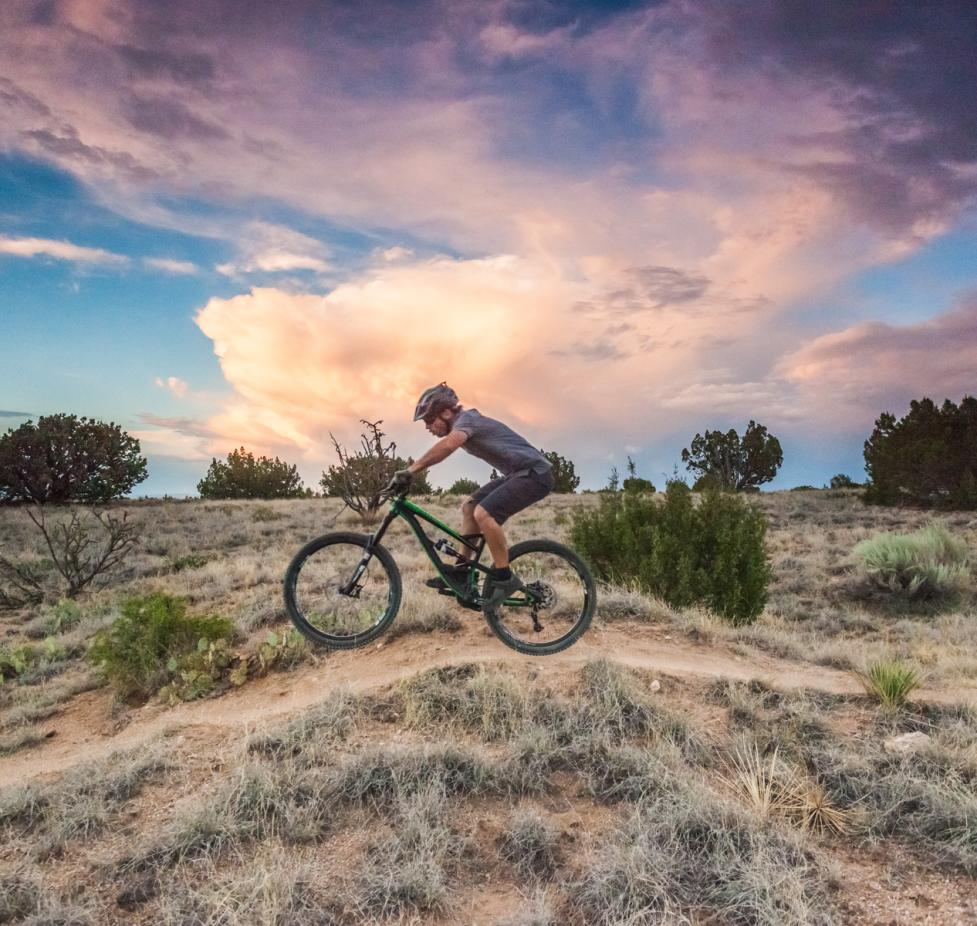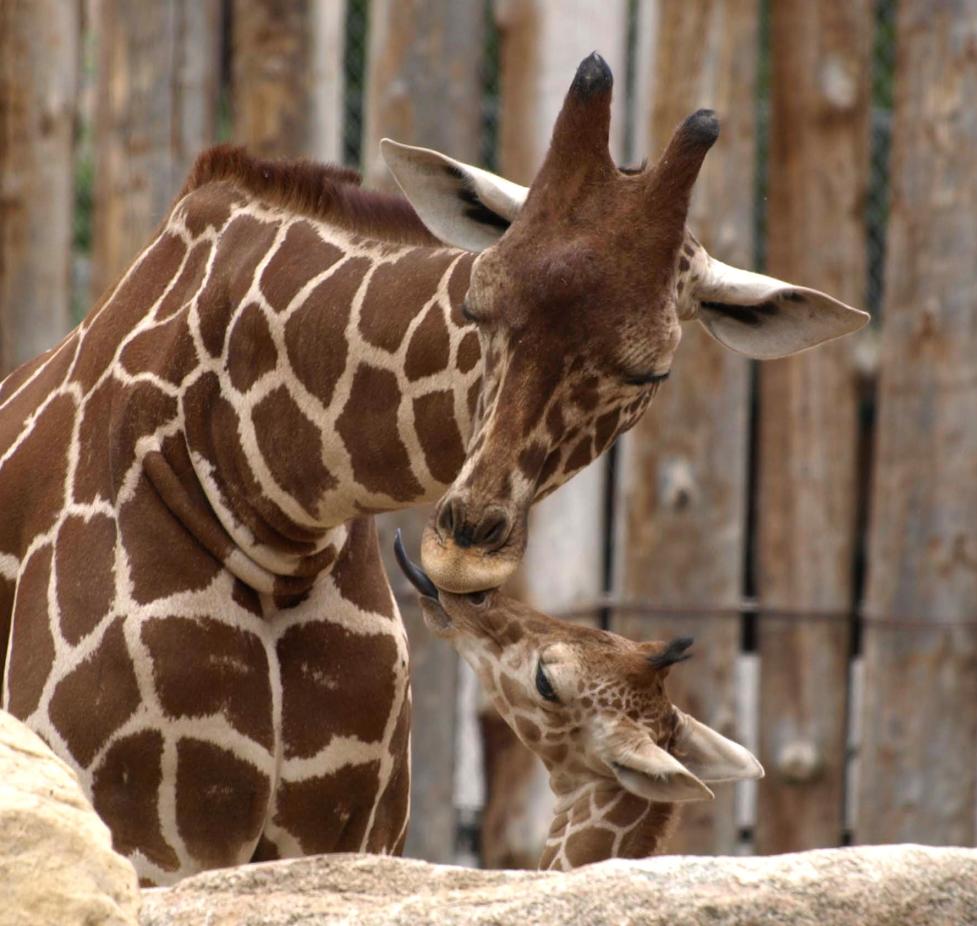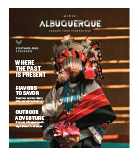Visit Albuquerque prohibits users from downloading images from our website.
Please use our media library for downloadable images and usage rights.
See More in this Section:
African American
Albuquerque is home to a rich and thriving African-American community including artists, entrepreneurs, families and individuals all tightly woven within the fabric of the city. The African-American community here reaches back to the first wave of Spanish explorers, and the history of this community includes societal and cultural challenges that, while similar to other cities, is unique to this region.
The Black community in New Mexico has a compelling legacy that dates back more than 500 years, starting with Estevanico, the Spanish Moor from North Africa, who came seeking gold. The famed Buffalo Soldiers, a Nobel Peace Prize winner, and today’s history makers have followed in his footsteps.
New Mexicans celebrate the African-American experience all year long:
*The African-American Performing Arts Center curates top-notch performances steeped in rich culture. (www.aapacnm.org)
*The Alice F. Hoppes African-American Pavilion at the annual Expo New Mexico state fair showcases exceptional talent.
*The Black History Month program at the University of New Mexico Africana Studies Department kicks off with an annual brunch the last Saturday in January; continues with a variety of related events throughout February; and closes with a cultural festival sponsored by the UNM African-American Student Services Division. (africanastudies.unm.edu)
*The annual Martin Luther King Day Parade, held in mid-January celebrates the life of the visionary peacemaker who championed civil rights and changed the course of this nation. The parade is sponsored by the New Mexico Martin Luther King Jr. State Commission, which seeks to fulfill Dr. King's dream, while reducing youth conflict, sponsoring a youth conference, giving commemorative awards, and hosting a leadership tour. (www.nmmlksc.org)
*The New Mexico Black History Month Organizing Committee, a coalition of organizations, hosts events throughout the year, including the Roots Summer Academy for youth. The committee also conducts a month-long festival throughout February, while offering numerous volunteer and sponsorship opportunities that provide a way for newcomers to learn about the community, become involved, and feel a sense of belonging. (www.nmblc.org)
*Texas transplants brought the festive annual Juneteenth Celebration to New Mexico in recognition of June 19, 1865—the day enslaved African-Americans were finally freed in Texas —a year and a half after President Lincoln signed the Emancipation Proclamation.
African-Americans in New Mexico are deeply driven by a sense of purpose. Many have stepped up to lead at the local and state levels, from long-time public servant James Lewis, the former state treasurer; to elected officials such as Sheryl Williams Stapleton and Jane Powdrell-Culbert. The State of New Mexico Office of African-American Affairs also serves as a community resource and advocacy organization. (www.oaaa.state.nm.us)
The Powdrell name is legend in New Mexico: Many a delicious meal has been enjoyed at Mr. Powdrell’s Barbecue House locations in Albuquerque or at events they cater. (www.bbqandsoulfoodabq.com) Founded by Pete and Catherine Powdrell in the ‘40s and ‘50s, the business has been handed down and carried on through their 11 children. The Powdrells paved the way for new businesses such as Ken Carson’s Nexus Brewery, an African-American owned “New Mexican Soul Food” establishment where you can spend many a happy hour. (www.nexusbrewery.com)
The city’s beauty and barber shops, along with other African-American businesses, create much-needed products and services, while serving as centers of communication for locals. But there’s nothing like a print publication to catch you up on all the important goings-on around town, a role ably played by the long-running media outlet, Perspective Magazine, helmed by long-time resident Ronnie Wallace.
One of the early African-Americans to relocate to Albuquerque was Ralph Bunche in 1915. He was a member of the esteemed Mount Olive Baptist Church back then, and went on to become a political scientist and diplomat who received the Nobel Peace Prize in 1950 for his mediation efforts in Palestine—the first African-American and first person of color so honored. Bunche also received the Medal of Freedom from President Kennedy. Some of the roots of his success were sown in Albuquerque, where his family moved from Detroit for the health of his mother and brother, who both had tuberculosis. After they passed on a few years later, his grandmother took the remaining family on to Los Angeles.
While the Bunche family attended Mount Olive, it was Grant Chapel African Methodist Episcopal that holds the honor of being Albuquerque’s first black church; it was founded in 1883 as a “house of worship and prayer for all nations of people.” Grant Chapel hosts an annual community-wide Martin Luther King Jr. scholarship breakfast.
You’d have to backtrack more than a century to find the trails the Buffalo Soldiers blazed while protecting our country on the front lines of the Southwest following the Civil War. A total of 12,500 black men—and at least one woman—were enlisted in the Army’s 9th and 10th cavalry, as well as the 38th, 39th, 40th and 41st, which protected settlements and establish towns throughout the territory. They set up mail and stage routes throughout the west, helping to maintain law and order.
The troops got their name from the Plains Indians in part because of their wooly hair, and in part because of their fearless might, which reminded the Indians of the buffalo’s strength. One soldier, Cathay Williams, served in a regiment in a time before women could vote. Eighteen brave Buffalo Soldiers ultimately received Medals of Honor.
So while Estavanico—a k a Esteban the black—never found the fabled cities of gold that his search party came looking for back in the 1500s, the African-American culture that’s developed in New Mexico over the ensuing centuries is rich indeed. —Pamela K. Johnson
A number of organizations and websites offer local or statewide calendars of events:
Looking For More Albuquerque Highlights?
Coupons & Discounts
Save money on Albuquerque and New Mexico restaurants, shopping, hotels, attractions, theater and more. Create... More
Sports & Outdoor
The city of Albuquerque sits at a mile above sea level (5,000-6,000 ft. elevation) and has a high-desert... More
Family Fun & Games
Albuquerque has fun for all ages, see our family fun page to learn more! More

